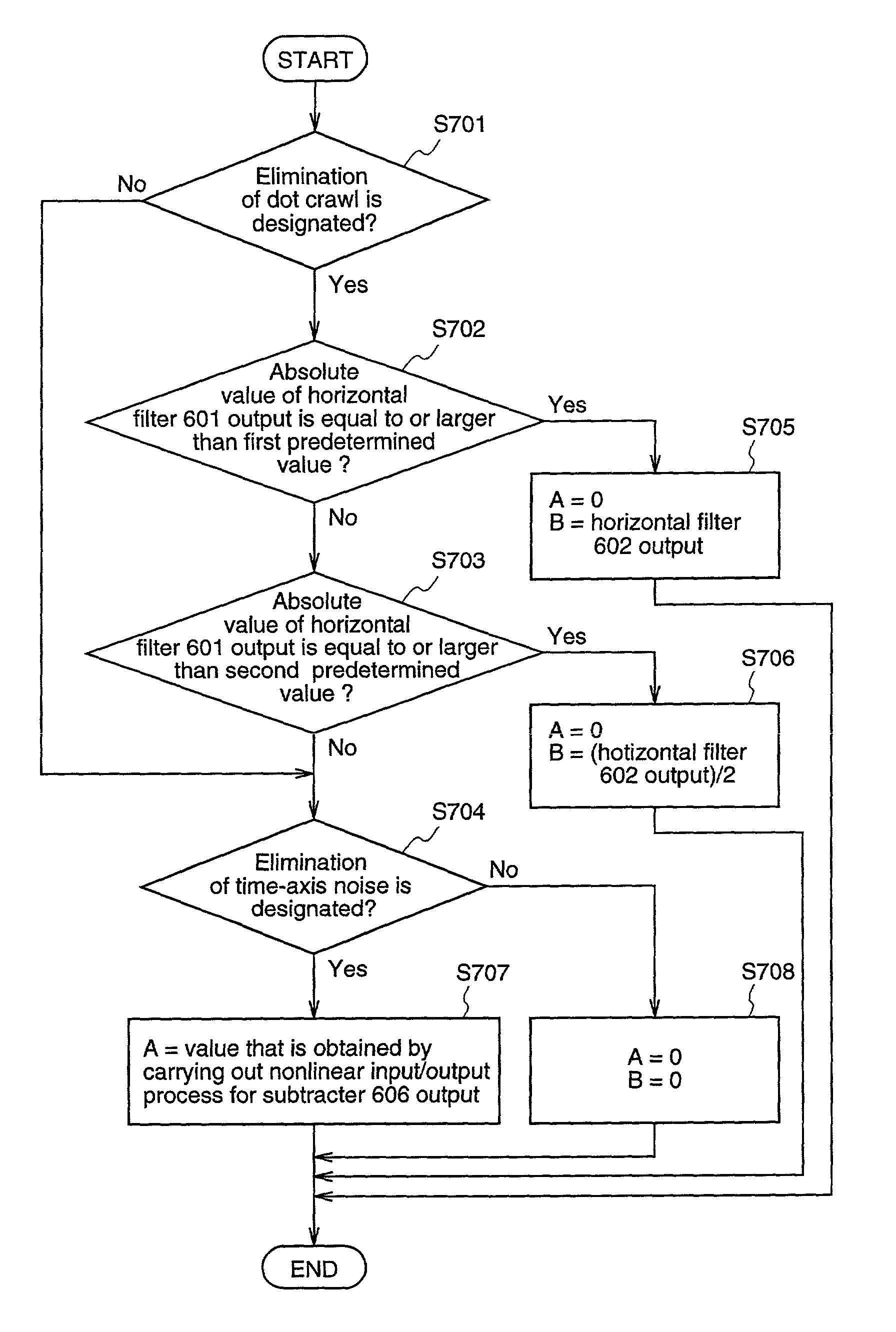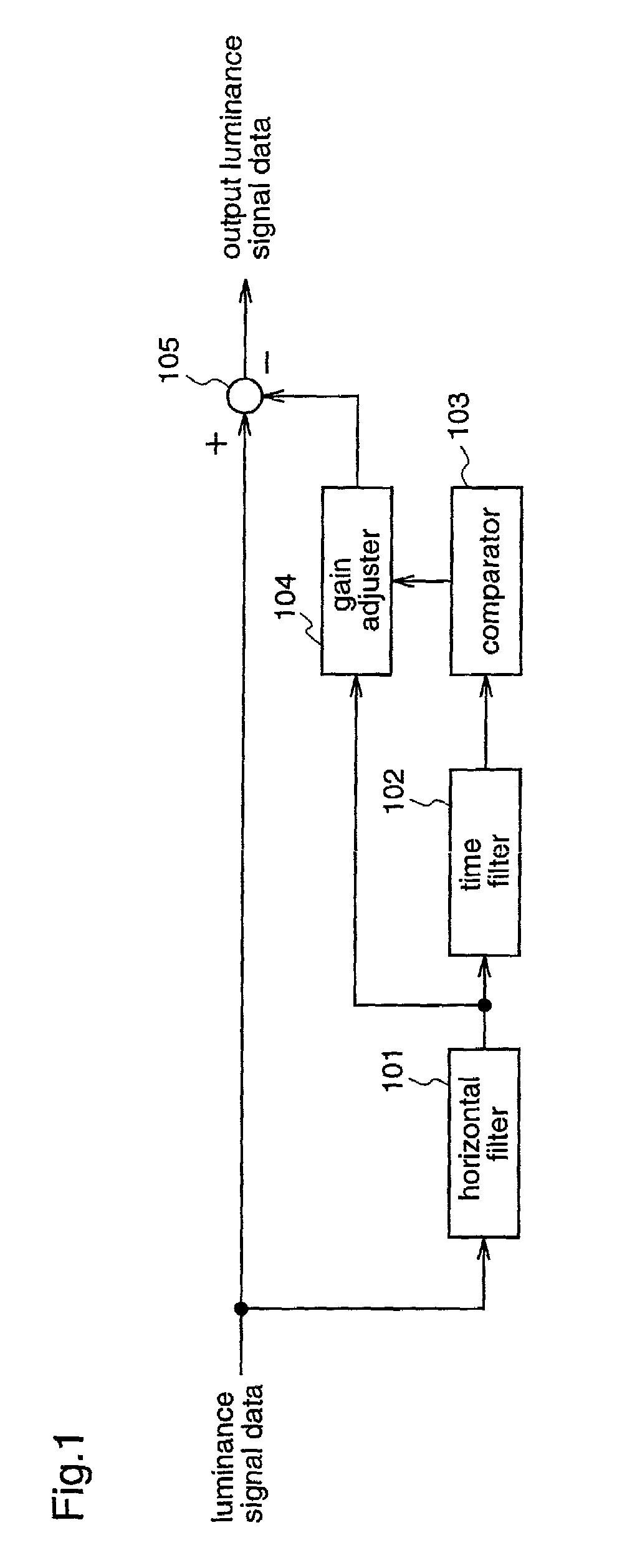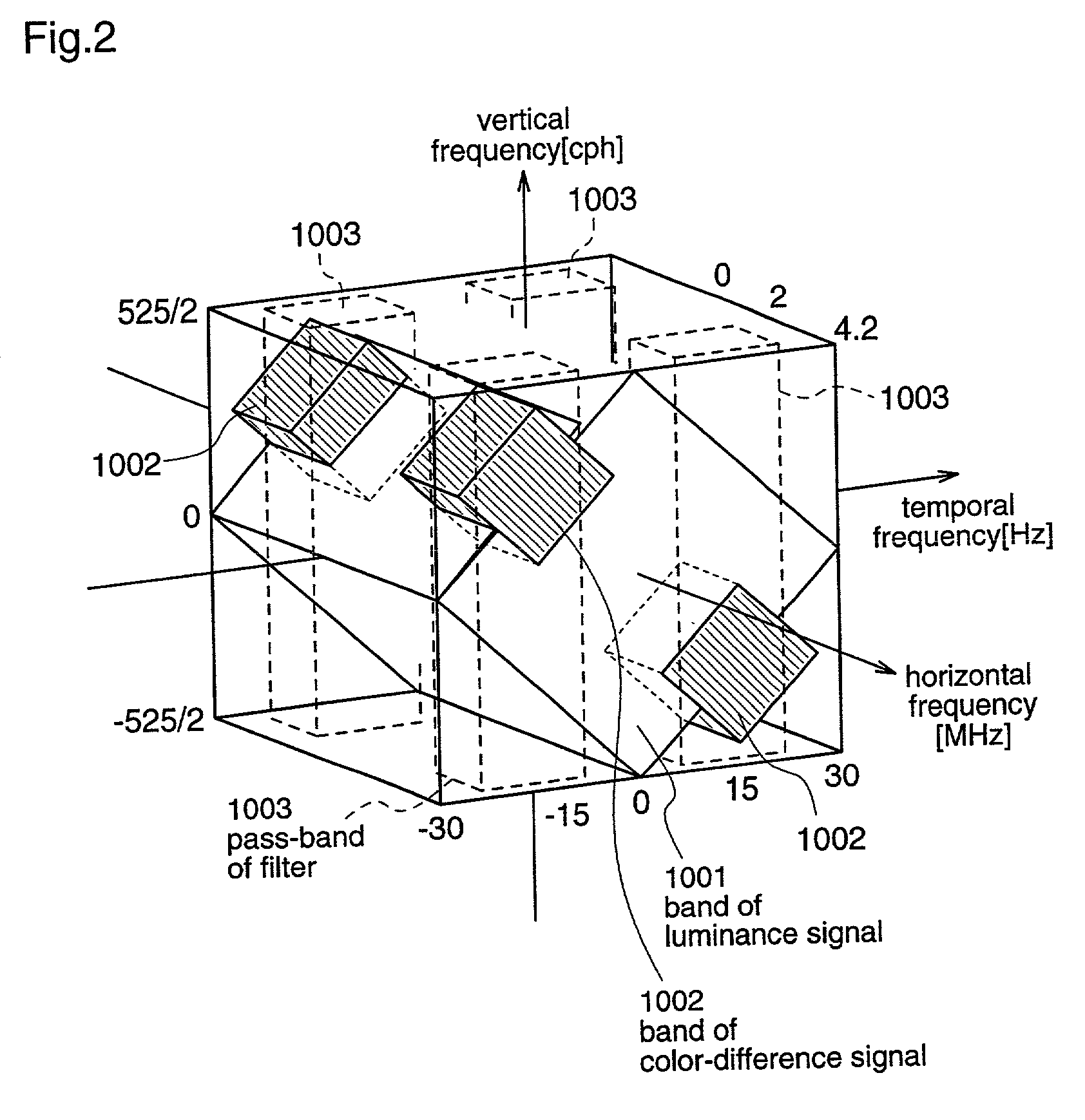Video signal processing method and apparatus
a video signal and processing method technology, applied in the field of video signal processing methods and apparatuses, can solve problems such as method by, cross color interference, and harmful influences, and achieve the effect of effectively eliminating cross color interferen
- Summary
- Abstract
- Description
- Claims
- Application Information
AI Technical Summary
Benefits of technology
Problems solved by technology
Method used
Image
Examples
embodiment 1
[Embodiment 1]
[0050]FIG. 1 is a block diagram illustrating a structure of a video signal processing apparatus according to a first embodiment of the present invention. In FIG. 1, reference numeral 101 denotes a horizontal filter, numeral 102 denotes a time filter, numeral 103 denotes a comparator, numeral 104 denotes a gain adjuster, arid numeral 105 denotes a subtracter.
[0051]The video signal processing apparatus according to the first embodiment eliminates dot crawls from a component video signal. Here, the operation of the video signal processing apparatus according to the first embodiment will be described.
[0052]Luminance signal data of the component video signal is inputted to the video signal processing apparatus of FIG. 1. The input luminance signal data is filtered by the horizontal filter 102. Here, the frequency characteristics of the horizontal filter 101 are those of a band-pass filter having the frequency of 3.58 MHz of a carrier signal in an NTSC signal as a pass-band....
embodiment 2
[Embodiment 2]
[0062]FIG. 4 is a block diagram illustrating a structure of a video signal processing apparatus according to the second embodiment of the present invention. In FIG. 4, numerals 401 to 403 denote a frame memory, respectively. Numeral 404 denotes a horizontal filter. Numeral 405 denotes a cross color detector. Numeral 406 denotes a gain adjuster. Numerals 407 to 410 denote a subtracter, respectively.
[0063]The video signal processing apparatus of the second embodiment eliminates cross color interferences from a component video signal.
[0064]In an NTSC signal, a color signal is multiplexed into a luminance signal. In this case, a signal that is obtained by modulating a color subcarrier (frequency of 3.58 MHz) with a color signal is multiplexed. The frequency of 3.58 MHz is 227.5 times as high as the horizontal scan frequency (15.75 kHz). Therefore, the color subcarriers of adjacent scan lines in the same field are shifted by a half cycle, which are shown in FIG. 18.
[0065]FI...
embodiment 3
[Embodiment 3]
[0078]A video signal processing apparatus according to a third embodiment of the present invention simultaneously eliminates an arbitrary combination of noises among three noises of dot crawls, cross color interferences, and time-axis noises, from a component video signal. Here, the time-axis noises refer to noises of minute level occurring at random in the temporal direction.
[0079]Initially, a method for designating which combination of noises among the three noises is to be eliminated will be described with reference to FIG. 19. FIG. 19 is a block diagram illustrating a structure of a video signal processing apparatus comprising a video signal processing means 1001, an input accepting means 1002, and a display means 1003.
[0080]In the video signal processing apparatus of the third embodiment, the user designates which noises are to be eliminated among three noises of dot crawls, cross color interferences and time-axis noises. The display means 1003 makes a display for...
PUM
 Login to View More
Login to View More Abstract
Description
Claims
Application Information
 Login to View More
Login to View More - R&D
- Intellectual Property
- Life Sciences
- Materials
- Tech Scout
- Unparalleled Data Quality
- Higher Quality Content
- 60% Fewer Hallucinations
Browse by: Latest US Patents, China's latest patents, Technical Efficacy Thesaurus, Application Domain, Technology Topic, Popular Technical Reports.
© 2025 PatSnap. All rights reserved.Legal|Privacy policy|Modern Slavery Act Transparency Statement|Sitemap|About US| Contact US: help@patsnap.com



